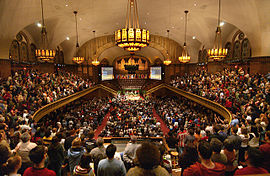This picture has been floating around the internet for a couple of years, and I’m not sure where it belongs or who was the original photographer. It’s a classic example of a picture speaking 1000 words, but what is it saying? Is it about protection? Or maybe mother-love? Possibly mentoring? Or patiently waiting? Maybe listening to our elders? Or a willingness to accept protection from someone else?
When I first saw it, my mind linked up with something Jesus said about the Jews who’d rejected him and his message. His moving statement occurred during the last week of his life when he was already in Jerusalem to sacrifice himself for the sins of mankind. With a heavy heart he faced imminent torture and death, but that didn’t stop him from engaging in a major confrontation with a group of Pharisees who were continuing to harass him, bating him as always.
With intense emotion he squared off with them, detailing their wickedness at length and calling them hypocrites, snakes, and murderers, condemning them, describing them as greedy, blind, lawless, and self-indulgent. His righteous fury ended with a damning judgment, telling them they wouldn’t escape hell.
Yet even after all of that, his heart was breaking for their souls. His love for these enemies hadn’t wavered even slightly, despite their vindictiveness toward him. It’s at that very moment he spoke the words I thought of when I saw the above bird picture:
“O Jerusalem, Jerusalem, the city that kills the prophets and stones God’s messengers! How often I have wanted to gather your children together as a hen protects her chicks beneath her wings, but you wouldn’t let me.” (Matthew 23:37)
I find this extraordinary. It’s possible that a tear might even have been sliding down his cheek as his heart broke over the Pharisees. After all the hatred they’d shown him, and after he’d poured out the truth of their wickedness, his dominating emotion was love.
When I was a child we sang a hymn called “Under His Wings:”
Under His wings I am safely abiding,
Though the night deepens and tempests are wild,
Still I can trust Him; I know He will keep me,
He has redeemed me, and I am His child.
It was a comforting picture of the protection God offers, not necessarily physical protection but protection for our souls, both while on earth and later when in heaven. The birds above symbolize it beautifully, and Jesus spent his ministry offering that same protection to anyone who was willing, even the Pharisees. But as he said himself, they weren’t willing.
“Have mercy on me, O God, have mercy! I look to you for protection. I will hide beneath the shadow of your wings until the danger passes by.” (Psalm 57:1)





